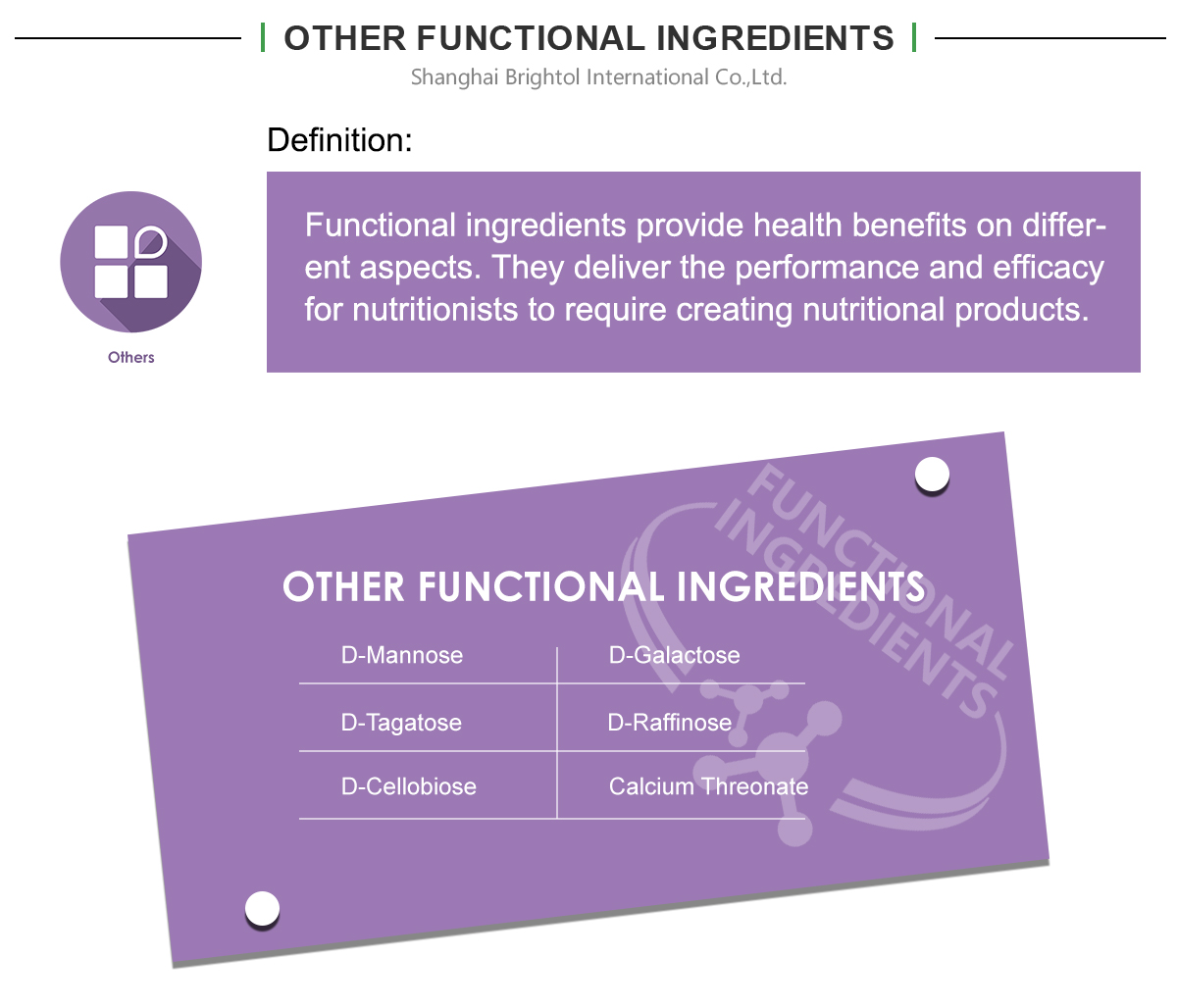

Product Name: D-Mannose
Synonyms: D-Mannose
Molecular Formula: C6H12O6
Molecular Weight: 180.16
CAS No.: 3458-28-4
EINECS: 222-392-4
Description:
Mannose is a simple sugar, called a monosaccharide, that’s produced in the human body from glucose or converted into glucose when it’s consumed in fruits and vegetables. “D-mannose” is the term used when the sugar is packaged as a nutritional supplement. Some other names for mannose include D-manosa, carubinose and seminose......


Product Name: D-Mannose
Synonyms: D-Mannose
Molecular Formula: C6H12O6
Molecular Weight: 180.16
CAS No.: 3458-28-4
EINECS: 222-392-4
Description:
Mannose is a simple sugar, called a monosaccharide, that’s produced in the human body from glucose or converted into glucose when it’s consumed in fruits and vegetables. “D-mannose” is the term used when the sugar is packaged as a nutritional supplement. Some other names for mannose include D-manosa, carubinose and seminose.
Scientifically speaking, mannose is the 2-epimer of glucose. It occurs in microbes, plants and animals, and it is found naturally in many fruits, including apples, oranges and peaches. D-mannose is considered a prebiotic because consuming it stimulates the growth of good bacteria in your gut.
Structurally, D-mannose is similar to glucose, but it’s absorbed at a slower rate in the gastrointestinal tract. It has a lower glycemic index than glucose, as after it’s consumed it needs to be converted into fructose and then glucose, thereby reducing the insulin response and impact on your blood sugar levels.
Mannose is also filtered out of the body by the kidneys, unlike glucose that’s stored in the liver. It doesn’t stay in your body for long periods of time, so it doesn’t act as fuel for your body like glucose. This also means that mannose can positively benefit the bladder, urinary tract and gut without affecting other areas of the body.
Health Benefits:
1. Treats and Prevents Urinary Tract Infections
2. Suppress Type 1 Diabetes
3. Works as a Prebiotic
Top 20 D-Mannose Foods:
1. Cranberries
2. Oranges
3. Apples
4. Peaches
5. Blueberries
6. Mangos
7. Gooseberries
8. Black currants
9. Red currants
10. Tomatoes
11. Seaweed
12. Aloe vera
13. Green beans
14. Eggplant
15. Broccoli
16. Cabbage
17. Fenugreek seeds
18. Kidney beans
19. Turnips
20. Cayenne pepper








